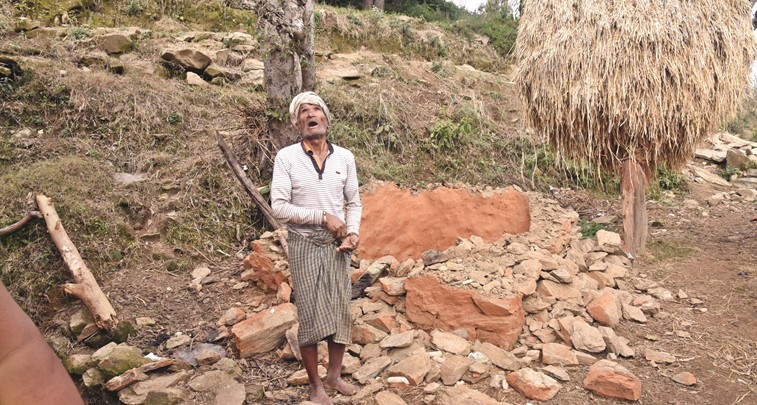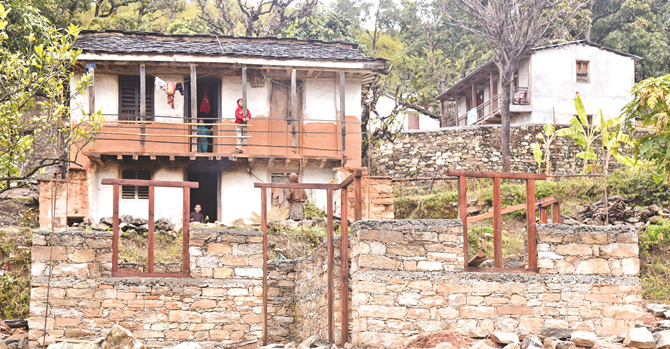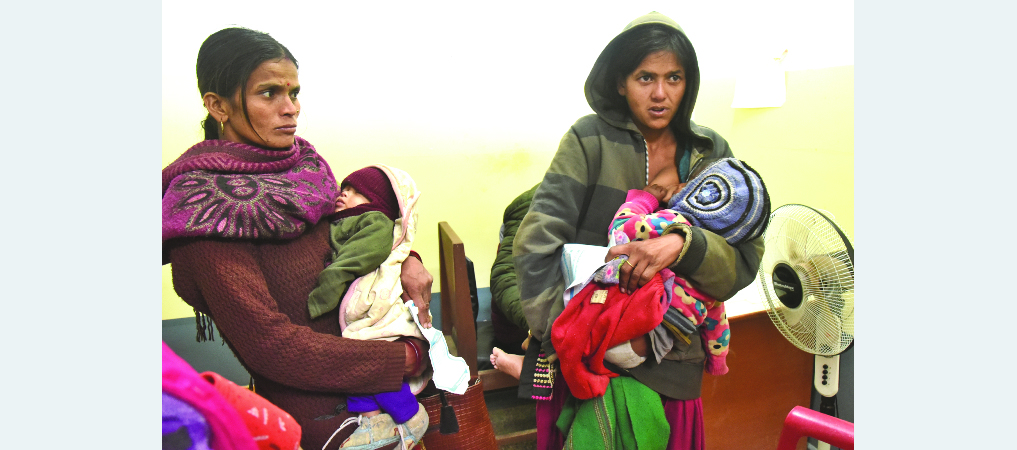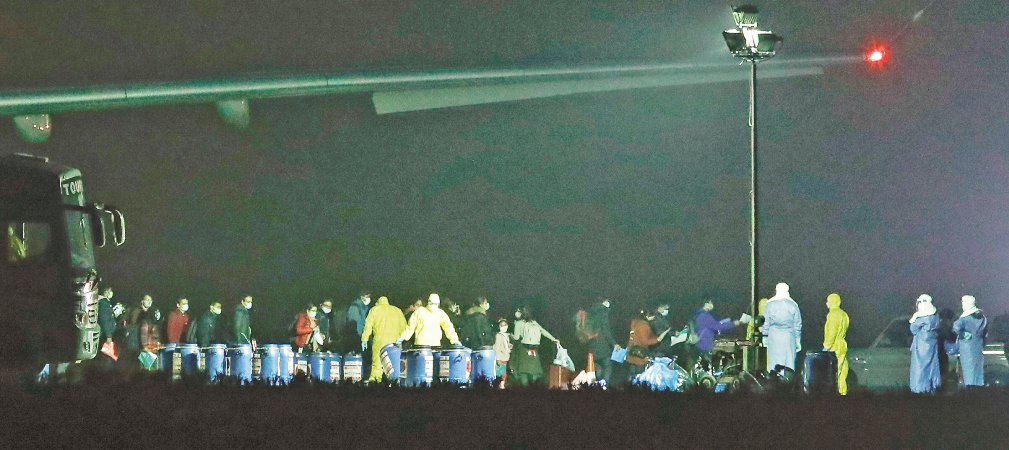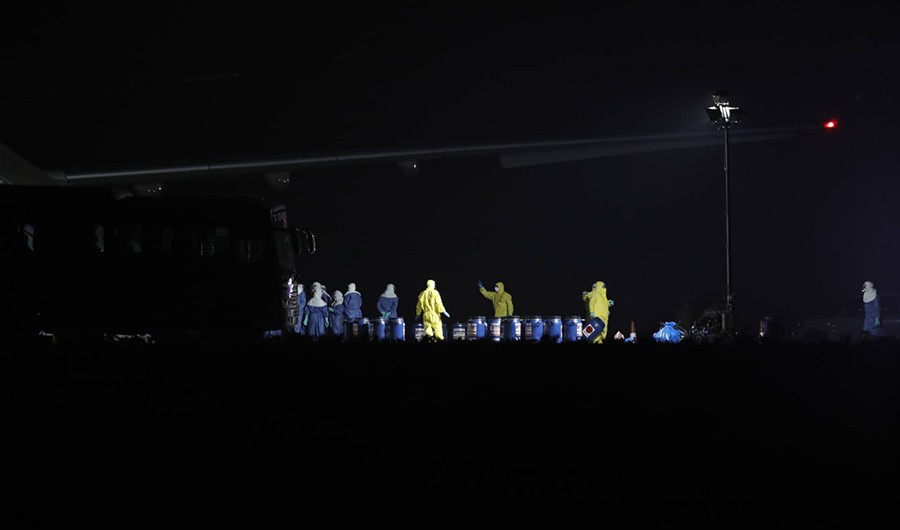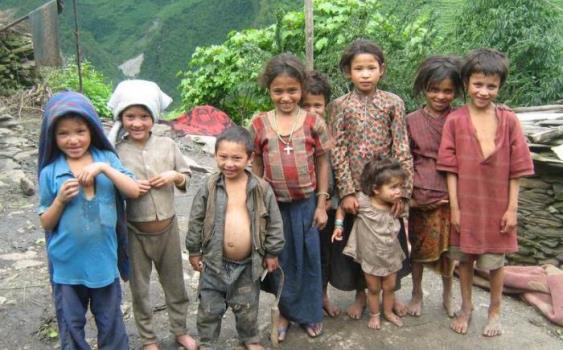COVID-19 Vaccination: Success Depends On Building Confidence

Ajita Rijal
The COVID-19 pandemic has gripped the whole world for more than a year. Governments and scientists across the globe burned the midnight oil to find a strong solution to this deadly pandemic. Ultimately, their efforts paid off as they found vaccines. The swift successful trials and the availability of vaccines have brought a big relief to all.
Nepal also received one million doses of the COVID-19 vaccine from India, which brought hopes among the Nepali people, who panicked for a year following the outbreak of the deadly virus.
Vaccine Arrival
The much-awaited COVID-19 vaccine arrived in the last week of January and the first phase of 10-day nationwide vaccination drive
was conducted from January 27 to February 6.
During the 10-day drive prioritised groups of frontline workers, including sanitation workers, drivers of vehicles collecting and dumping the waste, the ambulance, mortuary van drivers and helpers, health workers providing direct treatment services or those health workers assigned for vaccination management received the first jab.
According to the Ministry of Health and Population (MoHP), during 10 days, a total of 1,84,745 people got the jabs across the country. The number is only around 43 per cent of the originally planned figure of 430,000 frontline health workers, according to MoHP.
Everyone, including government authorities, health experts and workers were excited with the availability and arrival of the vaccines much before the expected time in Nepal. However, once the inoculation kicked off, it appeared that even health workers and other front liners, seem to be lacking confidence in the vaccines.
As most of the health workers registered at the Nepal Medical Council have gone abroad for employment or studies, the number of people
receiving vaccines here is lesser than the targeted.
Following the first phase, the MoHP has now decided to provide the surplus COVID-19 vaccines from the drive to media persons, employees of the UN agencies and dependents of foreign employees and employees of embassies and diplomatic missions beginning this week.
Although the priority plans were made to vaccinate people aged above 55 years, as they fall in the higher risk group of COVID-19, the Ministry revised its plan as no adequate dose of vaccines was left for the elderly population.
“As the number of frontline health workers getting vaccinated in the first phase is less than 200,000, the remaining doses of vaccines would not be adequate for the people aged above 55 years," said Dr Jageshwor Gautam, MoHP Spokesperson, adding that the elderly citizens would get the jab as soon as the additional vaccines arrive in the country.

Trust and Confidence
Experts say that the main reason why many health workers and front liners are reluctant to get the jab seems to be due to lack of proper communication and awareness. Everyone must understand the importance of the vaccine before getting it. If they do not understand the importance, it will be difficult to achieve the targeted results.
“The government must work extensively on communication to eliminate misinformation and rumours about the vaccination,” said Dr Rabindra Pandey, a public health expert."We need to disseminate positive information that can boost people's confidence towards a vaccine."
As per the World Health Organisation (WHO), people are inevitably exposed to misinformation, rumours and false conspiracy theories, which may erode their confidence in vaccination.
“It is important to build trust in the COVID-19 vaccines before people form an opinion against them,” as per WHO.
For a successful vaccination drive, people’s trust in the vaccine is necessary. But it was found lacking in Nepal.
Dr. Shyam Raj Upreti, Coordinator of the COVID-19 Vaccine Advisory Committee at the MoHP, said that the first vaccination drive in Nepal could not be considered successful in terms of coverage. “We somewhat failed to generate awareness about the importance of vaccination to overcome the pandemic prior to launching the campaign."
The problem and health emergency created by the COVID-19 pandemic is already incalculable, and the end is not in sight.
Hesitancy in getting vaccine among people are the biggest obstacles in ending the pandemic. In order to overcome their reluctance, there is a necessity of sharing adequate information before, during and after vaccination.
Importance of Vaccination
The intervention of vaccines for any kind of diseases is one of the greatest public health successes. While medicines help treat diseases, vaccines can help prevent people from getting sick in the first place.
However, regardless of the successes of vaccination, vaccine hesitancy – defined by the WHO as a “delay in acceptance or refusal of vaccines despite the availability of vaccination services,” – threatens to reverse the progress made in combating serious and preventable infectious diseases.
The reasons for why people choose not to get vaccinated are complex; a vaccine advisory group to WHO identified complacency, inconvenience in accessing vaccines and lack of confidence is key reasons underlying hesitancy. Health workers, especially those in communities remain the most trusted advisor and influencer of vaccination decisions and they must be supported to provide trusted, credible information on vaccines.
“During the inoculation period of the first phase drive, we tried to address vaccine hesitancy and tackle misinformation on vaccines hope more confidence will be developed among the vaccine receivers in the second phase,” said Dr. Jhalak Gautam, Chief of Child Health and Vaccine Section at the Department of Health.
To raise awareness, the MoHP has been working hard to disseminate information through video messages of various health experts.
“The vaccination programme was launched without any preparations. An awareness campaign was essential with the vaccination drive to increase the coverage rate,” said Dr Pandey.
In order to eliminate misconception about the Covishield, awareness is very essential. There will be an increasing number of citizens who will avoid this vaccine, if prior awareness campaign is not conducted, added Dr Pandey.
Vaccine confidence among health workers is vital in promoting vaccine confidence among the public. If the health workers are very confident of the vaccine, others will be confident that the vaccine is safe and effective, said Dr Sagar Rajbhandari, Director of the Sukraraj Tropical and Infectious Disease Hospital.
According to the MoHP, though people are working in the hospitals, they have not taken the jab. “We also insisted many health workers to get vaccinated,” said Dr Rajbhandari and added that concerned authorities must conduct massive awareness to build confidence and trust in the vaccine.
Understanding Side Effects
According to various studies and research, there are side effects associated with all types of vaccinations.
Having some side effects from receiving a vaccine is not unusual; this is what the health experts are saying since the development of vaccines.
As per the Serum Institute of India(SII), the manufacturer of the vaccine developed by the University of Oxford and pharmaceutical giant AstraZeneca, ‘Covishield’, some common side effects, which may be seen in more than one 10 people after the first vaccine dose, could be tenderness, pain, warmth, redness, itching, swelling or bruising where the injection is given.
Other common side effects, which may be noticed in up to 1 in 10 people, include a lump at the injection site, fever, feeling sick (nausea, vomiting) and flu-like symptoms (high temperature, sore throat, runny nose, cough and chills), according to the SII factsheet.
People may also feel generally unwell, tired or can have chills or a feverish feeling. Nausea and joint pain or muscle ache are other possible side effects, it adds.
Uncommon side effects, which may affect up to 1 in 100 people, include feeling dizzy, loss of appetite, abdominal pain, enlarged lymph nodes, excessive sweating and itchy skin or rashes, according to the SII.
People must tell the health care provider of their medical conditions before taking the vaccine.
People must consult doctors, if they have severe allergic reactions after any drug, food or vaccine; bleeding disorder; blood thinner medication and immunocompromised or under medication that affects the immune system, before deciding to receive the vaccine.
In the case of women, they must disclose if she is pregnant, plans to become pregnant or is breastfeeding.
The Covishield vaccine has been approved for restricted use in an emergency in individuals 18 years of age and older, according to SII.
Protection
Health experts have said that COVID-19 vaccination will protect from being infected by COVID-19. A COVID-19 vaccine might prevent an individual from getting COVID-19 or from becoming seriously ill or dying due to the virus, prevent you from spreading the virus to others, add to the number of people in the community who are protected from getting COVID-19.
“You may have some side effects, which are normal signs,” said Dr. Jhalak Gautam.
According to Dr Anup Bastola, the chief consultant at Sukraraj Tropical and Infectious Disease Hospital, of the 29 health workers who received the shot, 23 showed some side effects within eight hours of taking the jab.
Dr. Bastola shared 25 per cent experienced pain at the injected site, 18 per cent developed chills, 17 per cent had a headache, 14 per cent had myalgia (muscle pain), 11 per cent had a fever and another 11 per cent felt dizziness. Likewise, four per cent can complain of swelling at the injected site, shortness of breath, vomiting and erythema (redness of the skin).
People noticed mild side effects after getting the jab, which is common, said Dr Jhalak Gautam adding, “I don’t think it should be a barrier for people to get vaccinated.”
It is very important to understand that even if some side effects are noticed after immunisation, people must take it easy, as it is a sign that the shot is working,” added Gautam.
Although some side effects were seen among the vaccine beneficiaries, no severe case was reported during the first phase of the vaccination campaign against COVID-19, he added.
(Rijal works at TRN)
Recent News

Do not make expressions casting dout on election: EC
14 Apr, 2022
CM Bhatta says may New Year 2079 BS inspire positive thinking
14 Apr, 2022
Three new cases, 44 recoveries in 24 hours
14 Apr, 2022
689 climbers of 84 teams so far acquire permits for climbing various peaks this spring season
14 Apr, 2022
How the rising cost of living crisis is impacting Nepal
14 Apr, 2022
US military confirms an interstellar meteor collided with Earth
14 Apr, 2022
Valneva Covid vaccine approved for use in UK
14 Apr, 2022
Chair Prachanda highlights need of unity among Maoist, Communist forces
14 Apr, 2022
Ranbir Kapoor and Alia Bhatt: Bollywood toasts star couple on wedding
14 Apr, 2022
President Bhandari confers decorations (Photo Feature)
14 Apr, 2022



